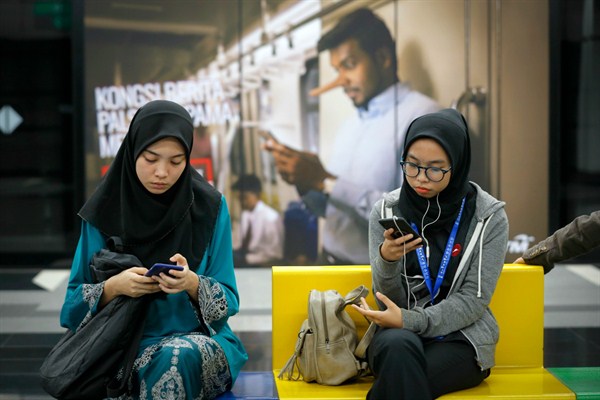On April 3, Malaysia became the first country in the world to approve specific legislation criminalizing the dissemination of “fake news.” The new law includes penalties of up to six years in prison and fines of up to 500,000 Malaysian ringgit—approximately $128,000—for anyone who “maliciously creates, offers, publishes, prints, distributes, circulates or disseminates any fake news.”
The move came just days before Prime Minister Najib Razak dissolved parliament, paving the way for general elections now scheduled for May 9. The election will mark a key test for Najib, who has been hounded by a massive corruption scandal involving a state investment fund he oversaw, 1Malaysia Development Berhad, or 1MDB—$700 million from which allegedly ended up in the prime minister’s personal bank accounts.
Critics have assailed the new bill as an attempt to tamp down the 1MDB scandal and shore up the ruling party’s election prospects. They also point out that the legislation could have long-term consequences in Malaysia, equipping future governments with a new “political weapon” to go after critics for years to come.

